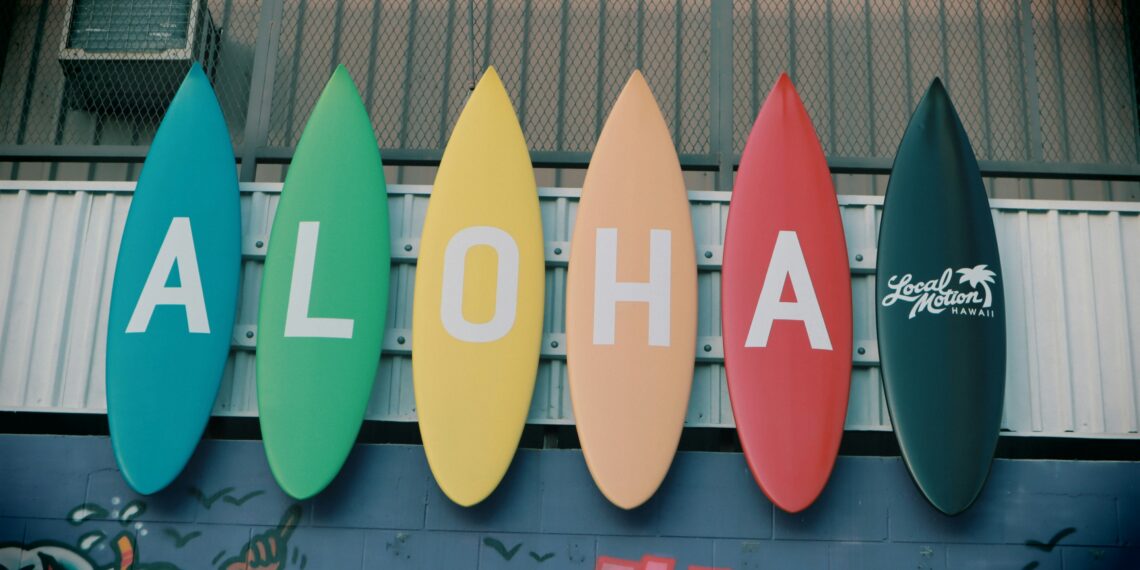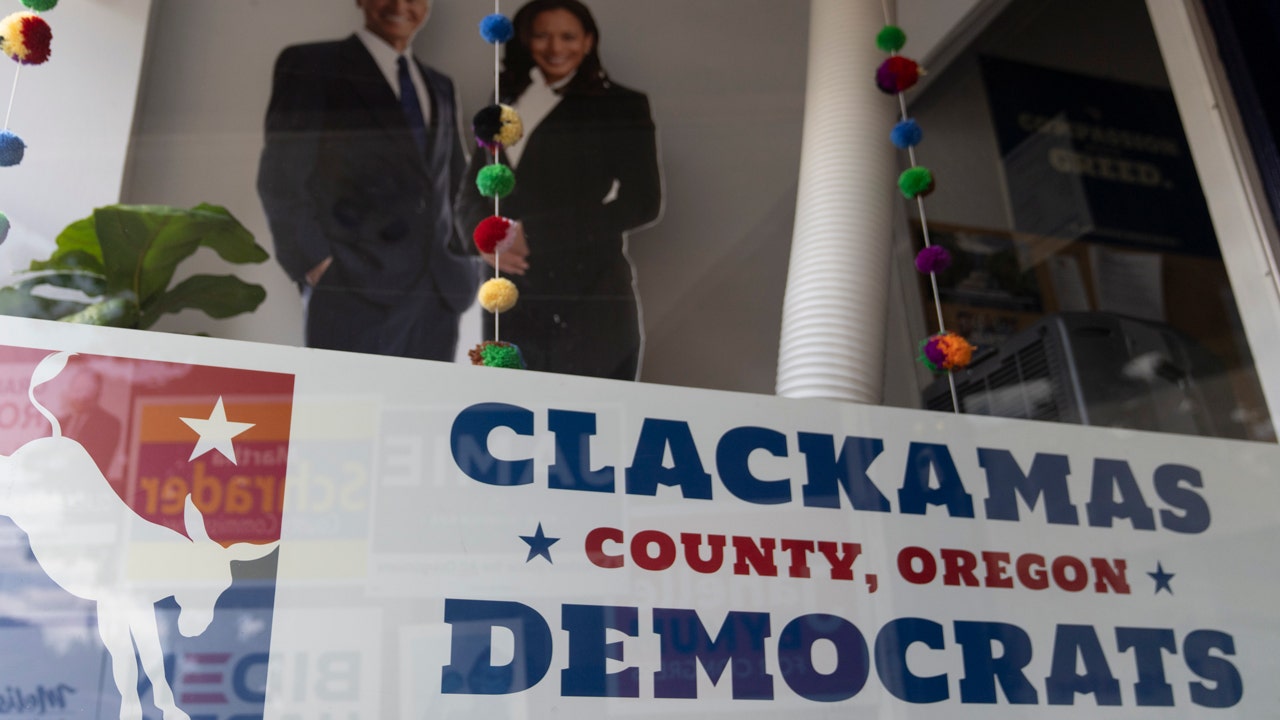Hawaii
Hawaii Marijuana Legalization Bill One Step Away From Senate Approval

Two legislative committees last week approved a bill to legalize recreational marijuana in Hawaii, leaving the measure one step away from approval in the state Senate. The legislation, Senate Bill 3335, was approved by the Senate Ways and Means Committee and the Senate Commerce and Consumer Protection Committee on Friday. The next step before final approval of the bill in the Hawaii Senate is a floor vote by the full body, which could come as soon as this week, according to a report from online cannabis news source Marijuana Moment.
If passed, the legislation would legalize the use of cannabis by adults 21 and older, who would be permitted to possess up to one ounce of marijuana and up to five grams of cannabis concentrates. The bill also allows for the home cultivation of up to six cannabis plants by adults and creates a new state agency that would be tasked with regulating the commercial production and sale of marijuana and hemp.
A bill to legalize recreational marijuana in Hawaii could be approved by the state Senate this week … [+]
Senate Bill 3335 and a companion measure in the House of Representatives were introduced in the Hawaii legislature by Democratic lawmakers in January. The bills are based on a recreational marijuana legalization proposal offered by Attorney General Anne Lopez last year.
Committees Approve Amendments To Bill
Before voting to approve the measure on Friday, the two Senate committees held a joint hearing to consider several amendments to the legislation. One amendment approved by the panels made a slight change to the name of the new regulatory agency, which would be called the Hawaii Hemp and Cannabis Authority to indicate its oversight of both marijuana and hemp.
Another amendment adopted by the committees eliminates the bill’s funding levels “to reflect the ongoing discussion going on at the legislature right now,” according to Democratic Sen. Jarrett Keohokalole, the sponsor of the measure in the Senate and the chair of the Commerce Committee.
The committees also approved an amendment that allows those with past felony marijuana convictions to apply for licenses and employment in the regulated cannabis industry, provided at least 10 years have passed since the end of their incarceration, probation or supervised release. Another change clarifies that the possession and sale of marijuana paraphernalia is also legal under Hawaii state law.
Democratic Sen. Herbert “Tim” Richards, a Commerce and Consumer Protection Committee member, voted to support the bill with reservations.
“I think we’re really close,” Richards said at the joint hearing. “I’m going to be supporting with reservations, just because I think we still got a little bit we need to do, but I think we’re close.”
The bill would legalize recreational marijuana in Hawaii and allow adults to grow up to six weed … [+]
Republican Sen. Kurt Fevella said he does not support the bill “because we have no parameters, really, on how this is gonna be.”
“You guys all know I support hemp,” he added, “but with this cannabis pleasuring thing, I cannot support the bills.”
Democratic Sen. Sharon Moriwaki, a member of the Ways and Means committee, voiced concerns that the state’s medical marijuana program lacks proper procedures, according to a report from Big Island Now.
“Having this move to a pleasure cannabis gives me concern,” Moriwaki said.
Panels Hear From Groups On Both Sides Of Weed Legalization
The committees heard from groups that support cannabis legislation, although they called for changes to the bill. The ACLU of Hawaii issued a statement noting its support for legalizing recreational marijuana but said that “this draft falls short of the robust social equity and reparative justice reforms required to address the harms and collateral consequences of cannabis arrest and conviction records that last a lifetime.”
“Notably, these harms have disparately impacted Native Hawaiians,” the civil liberties advocacy group added. “Native Hawaiians do not use drugs at drastically different rates from people of other races or ethnicities, but Native Hawaiians go to prison for drug offenses more often than people of other races or ethnicities.”
Karen O’Keefe, director of state policies for the cannabis legalization advocacy group Marijuana Policy Project (MPP), said that the current draft of the bill “takes an overly punitive approach and fails to include a sufficient commitment to equity.”
“Alarmingly,” O’Keefe testified, “the bill could result in more people being ensnared in the criminal justice system for cannabis instead of less.”
The committees also heard from state agencies opposed to legalizing recreational cannabis in Hawaii. The state Department of Law Enforcement said in written testimony that it has “serious concerns” about the legislation, citing a controversial report from Colorado claiming that fatal traffic collisions that could be linked to marijuana “nearly doubled between 2013 to 2020.”
“If cannabis were to be legalized in an adult use system for Hawaii, then it is highly probable that the rate of fatal car crashes and roadway deaths in Hawaii would very likely increase, especially amongst young drivers in Hawaii,” the department wrote.
The state Department of Education expressed “strong concerns” with the legalization bill and “the potential impacts it could have,” noting that research has shown that cannabis use might impair brain development in young people. The department also cited a study that found legalizing marijuana led to an increase in youth cannabis use.
“Therefore, if Hawaii legalizes adult recreational cannabis use, it must also invest in prevention and education initiatives,” Superintendent Keith T. Hayashi said in written testimony.
The legislation gained the approval of two different Senate committees last month. The next step for the bill is a floor vote on the legislation by the full Senate. The legislation is subject to a March 7 deadline to cross over to the House of Representatives, suggesting the Senate floor vote is likely to occur this week.

Hawaii
Howell student earns full-ride scholarship to Hawaii after JROTC work

HOWELL — Noah Flores, a senior at Howell High School, is headed to the University of Hawaii on a full-ride scholarship this fall, thanks to a prestigious national scholarship through the Naval Reserve Officers Training Corp he earned working with the school’s Air Force JROTC.
The scholarship comes with an annual book stipend, a monthly stipend, and summer training cruises with naval officers to gain on-the-job experience. He plans to major in marine biology.
“I’ve been interested in the Navy since my sophomore year in high school,” Flores says. “It’s always been my goal to (serve) in the military.”
To qualify for the scholarship, Flores had to meet the required SAT/ACT score, complete multiple interviews with various military personnel and civilian workers, and be deemed medically qualified by the U.S. Department of Defense. He also considered Ohio State University, but selected Hawaii because it gives him greater access to marine studies.
“I’ve always loved the water and am fascinated about (things) that live deep in the ocean,” Flores said. “(Hawaii) was on my bucket list of places to travel so I can knock that off my list.”
Upon graduation with a bachelor’s degree, Flores will become a second lieutenant officer in the U.S. Navy. After bootcamp, he hopes to become a naval pilot. His experience in JROTC should also qualify him for a higher salary once he finishes his undergraduate coursework.
Earning the prestigious scholarship is a testament to Flores’ character, dedication and leadership, according to Chief Master Stg. Jeffrey Bundy of the U.S. Air Force. Bundy is an HHS senior aerospace science instructor.
“We are confident that he will excel in his future endeavors and uphold the values of our unit and the military. This scholarship is an incredible opportunity for Cadet Flores to further develop his skills and make a significant impact as a future naval officer.”
Subscribe: Get unlimited access to our local coverage
Flores said his experience in JROTC has helped him become more disciplined at school and in life, and has given him leadership skills he can use forever.
“I really wanted to have that discipline because I think it gives me something that some other (high school students) may not have,” Flores said. “I’m fortunate.”
— M. Alan Scott is a freelance writer for The Livingston Daily. Contact the newsroom at newsroom@livingstondaily.com.
Hawaii
UH Manoa places in top 2.5% of universities worldwide, according to new ranking

HONOLULU (HawaiiNewsNow) – In a big honor for UH Manoa, the University placed in the top 2.5% of universities worldwide.
According to the Center for World University Rankings’ latest ranking, they place no. 511 out of 20,966 universities internationally.
UH Manoa also ranked no. 138 among universities in the U.S.
Schools were ranked on education, employability, faculty, and research.
Check out the ranking list here.
Copyright 2024 Hawaii News Now. All rights reserved.
Hawaii
Hawaii track and field team remains competitive despite facility waiting game

The Hawaii track and field team’s throwers operate in an auxiliary space that can’t quite contain the objects they hurl.
Its sprinters, distance runners and leapers warm up on a borrowed track and turf field next to elementary and middle schoolers enjoying P.E. class.
Decidedly not ideal, but such is the hard-knock life for the Rainbow Wahine, who have found a way to maintain – even upgrade – their standards amid a prolonged waiting period for a new on-campus facility.
Last week, UH finished third in the Big West women’s championships at Cal Poly, winning four events for their third straight top-three finish.
“We’ve reached a point where that’s not a surprise anymore,” UH track and field head coach Madeleine Carleton said this week.
On the heels of the meet, UH had two athletes – Hallee Mohr (discus) and Tara Wyllie (triple jump) – selected for next Saturday’s NCAA West Regional in Fayetteville, Arkansas.
And sprinter Isabella Kneeshaw, who won the 400 meter dash and helped UH sweep the Big West 4×100 and 4×400 relays, was named UH’s first Big West Freshman of the Year on Thursday.
Carleton said the team has made the best of a tough situation all the while. It has not had a designated space to call its own since the Clarence T.C. Ching Athletics Complex underwent renovations to accommodate UH football games starting in 2021.
Most of the team has practiced at Saint Louis School’s track and turf field, which is sometimes shared by Crusaders students during their time.
“It was certainly a very difficult year, for all of us,” Carleton told Spectrum News in a recent phone interview.
She said it was her veteran athletes who refused to let the team’s standards drop and held the group together.
“This team has fourth- and fifth-year seniors on the team who have been here really for the whole build of the program,” Carleton said. “You know, they remember when the team was ninth place and sixth place in the conference. And they’ve been the ones to bring it all the way up to consistent podiums where we are now.”
UH is in the process of constructing a new track and soccer venue at the former Cooke Field as part of a $30 million project. But construction experienced a delay of months before getting underway last October. Frequent Manoa rains have delayed the project further.
Cooke Field construction work as seen in February. (Spectrum News/Brian McInnis)
Carleton said her understanding is that the track portion could be done by October and usable for practices this fall. Its full functionality, including soccer, could be January 2025.
Communication with administration during the track and field team’s displacement started off poorly, she said, but has improved over time.
A finalized facility is a tantalizing prospect for a program that has “the most complete team that we’ve ever been,” in Carleton’s estimation. She and cross country/track director Tim Boyce welcome the day they can host track meets again.
But the immediate focus is the NCAA regionals, where Mohr and Wyllie will look to pick up where high jumper Lilian Turban left off last spring. (Turban nursed a foot injury this outdoor season and was held out of the Big West championships.)
Mohr, a 6-foot-1 senior and native of Raymond, Washington, set a UH record in the discus and won the event at the Big West with a throw of 58.25 meters (191 feet, 1 inch). That placed her 11th heading into the West Region meet, where she will appear for the third straight year.
“She has had an amazing, consistent high-quality season,” Carleton said. “She’s won most of the competition she entered in her specialty event this season, including having a big PR at the at the Big West meet, which was really exciting. And she is approaching the Olympic trials qualifying standard. I mean, that’s how good that performance was.”
Wyllie, a 5-foot-9 sophomore from Canberra, Australia, did not have her best showing at the Big West championships, but she advanced to the regional by virtue of her 12.77-meter performance at the Stanford Invitational on March 30. She won the Mountain Pacific Sports Federation indoor triple jump title in February.
“It’ll be a great experience for (Wyllie) to build off of,” Carleton said. “I think she’s definitely someone that in future years could be looking to qualify for the finals.”

Hawaii triple jumper Tara Wyllie will get a chance to compete at the NCAA West Regional at an early stage in her college career. (Photo courtesy of UH Athletics)
Brian McInnis covers the state’s sports scene for Spectrum News Hawaii. He can be reached at brian.mcinnis@charter.com.
-

 News1 week ago
News1 week agoSkeletal remains found almost 40 years ago identified as woman who disappeared in 1968
-

 World1 week ago
World1 week agoIndia Lok Sabha election 2024 Phase 4: Who votes and what’s at stake?
-

 Movie Reviews1 week ago
Movie Reviews1 week ago“Kingdom of the Planet of the Apes”: Disney's New Kingdom is Far From Magical (Movie Review)
-

 World1 week ago
World1 week agoUkraine’s military chief admits ‘difficult situation’ in Kharkiv region
-

 Politics1 week ago
Politics1 week agoTales from the trail: The blue states Trump eyes to turn red in November
-

 World1 week ago
World1 week agoBorrell: Spain, Ireland and others could recognise Palestine on 21 May
-

 World1 week ago
World1 week agoCatalans vote in crucial regional election for the separatist movement
-

 Politics1 week ago
Politics1 week agoNorth Dakota gov, former presidential candidate Doug Burgum front and center at Trump New Jersey rally




















